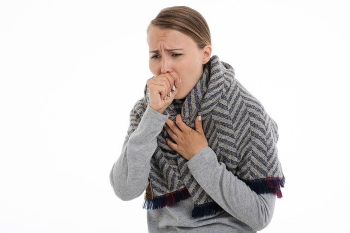The common cold and sore throats are typical, yet irritating health issues that are very frequent across college campuses. Find out how to prevent, identify, and treat these illnesses.
Expand all | Collapse all
What causes the common cold?
Viruses do. There are over 100 different viruses that can cause colds.
What are the symptoms of the common cold?
- Scratchy or sore throat
- Sneezing, runny/stuffy nose
- Watery eyes
- Tenderness around the eyes
- Full feeling in the ears
- Cough: dry or with white or clear mucus
- General tired feeling
- Fever below 101 degrees
- Mild headache
- Muscle and body aches
A cold virus can attack and multiply in cells that line the nose and throat. You can catch a cold if you touch your eyes or nose after touching the hand of an infected person or touching a hard surface shortly after an infected person touched it. This does not necessarily mean that you will become infected. It depends on your immune system and history of pervious exposure to the virus. Young adults average 4-6 colds per year.
What can I do to feel better?
There's no cure for a cold. Antibiotics don't work against viruses. All you can do to feel better is to treat your symptoms while your body fights off the virus.
- Stay home and rest, especially while you have a fever.
- Stop smoking and avoid secondhand smoke, which can make symptoms worse.
- Drink plenty of fluids like water, fruit juices and clear soups. Fluids help loosen mucus. Fluids are also important if you have a fever because fever can dry up your body's fluids, which can lead to dehydration.
- Don't drink alcohol.
- Gargle with warm salt water a few times a day to relieve a sore throat. Throat sprays or lozenges may also help relieve the pain.
- Use saline (salt water) nose drops to help loosen mucus and moisten the tender skin in your nose.
Should I take medicine for a cold?
No medicine can cure a cold or the flu. Medicine can, however, help relieve some of your cold or flu symptoms.
- Runny Nose/ Congestion: Runny nose and congestion may be relieved by a decongestant (pseudo-ephedrine e.g. Sudafed), but the common side effects are sleeplessness and decreased appetite.
- Nasal Sprays: Saltwater nasal sprays (e.g. Nasal or Ocean) may ease nasal congestion and make mucus less thick. Do not use medicated nasal sprays (e.g. Afrin) without health care provider direction because excessive use can cause dependence and may make congestion worse.
- Cough: Cough suppressants, dextromethorphan (e.g. Robitussin DM), may be used if a cough is interfering with sleep or work.
- Sore Throat: Lozenges and sprays containing phenol (e.g. Cepastat, Chloraseptic), or dyclonine (e.g. Sucrets Maximum Strength, Sucrets Throat Spray) are effective pain relievers for sore throat. Gargling with warm salt water (one teaspoon salt in a cup of hot water) 3-4 times a day may also help ease sore throat pain by helping reduce swelling of the tonsils and throat.
- Fever/Pain: It will be helpful for you to use a fever/pain reducer such as acetaminophen (e.g. Tylenol) or ibuprofen (e.g. Advil). Be sure to follow the instructions on the label and do not exceed the daily limit.
What preventative measures can I take?
- Wash your hands often and avoid touching your face, eyes, nose and mouth.
- Use disposable tissues.
- Eat a well balanced, healthy diet that includes plenty of citrus fruit and other sources of vitamin C.
- Drink plenty of fluids.
- Get adequate sleep.
- Avoid prolonged contact with people who have colds.
- Keep your stress level down.
- Keep your room humidity at moderate or high.
If you have any questions about the common cold you can call the Medical Clinic at (414) 288-7184 and ask to speak with a nurse.


